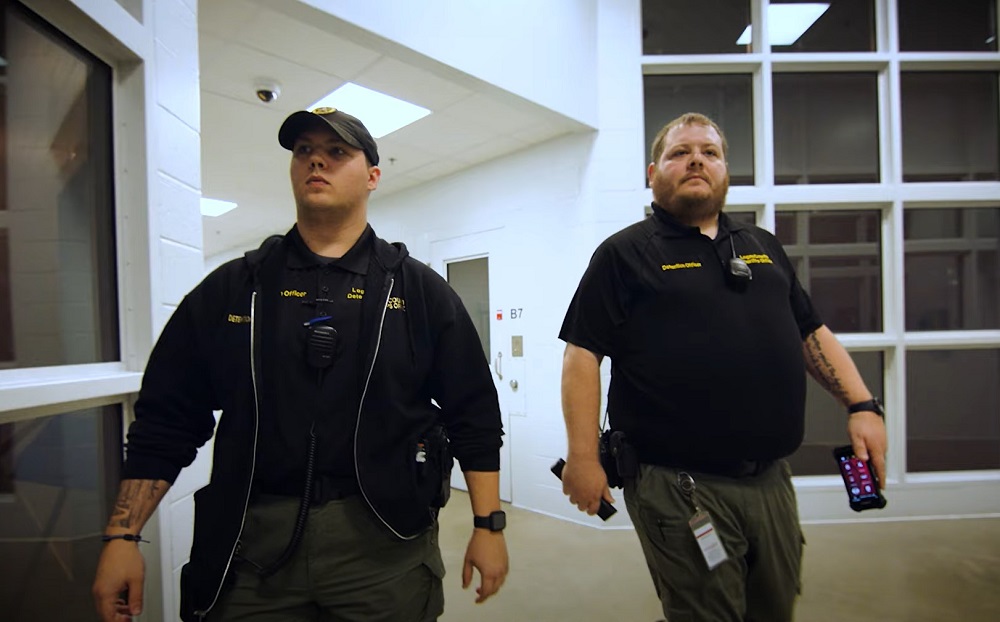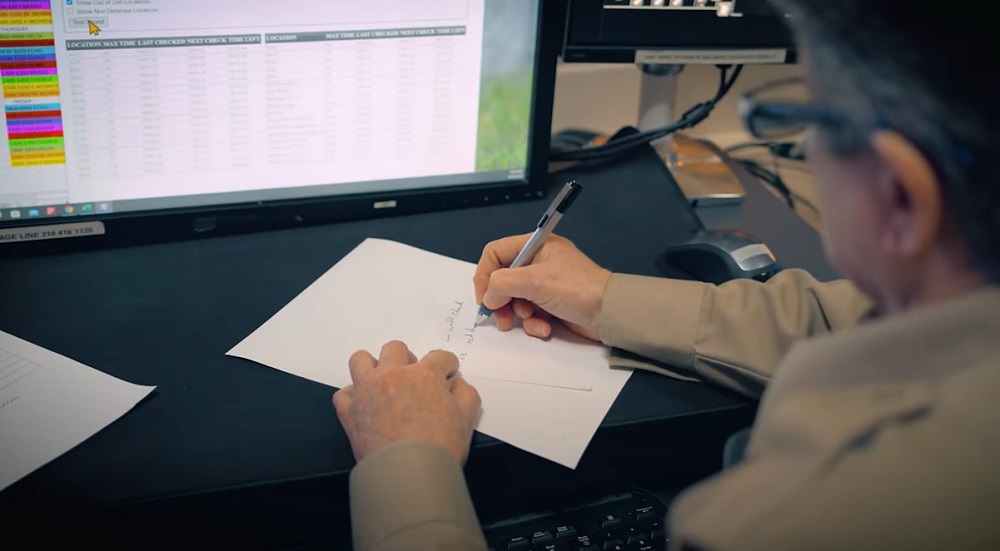3 Quick Tips to Become More Proactive on Shift
If you've used GUARDIAN RFID’s SPARTAN, you're likely familiar with the “purge siren” that sounds when a round is overdue. That blaring alarm can trigger a wave of anxiety, reminding you that you’re behind schedule and need to act quickly to get back on track. No one enjoys that feeling, so how can we avoid it?
In this blog, we’ll explore three simple tips for correctional officers to become more proactive and stay on top of their responsibilities during their shifts.
Reactive vs. Proactive
As a corrections officer, you must constantly react to whatever is thrown your way, both literally and figuratively. You’re often reminded to “stay on your toes and keep your head on a swivel” because the reality of working in corrections is that you never know what’s coming next. Planning can be challenging in a reactive environment, as your brain is conditioned to wait for something to happen before acting.
The Google definition of “reactive” perfectly captures this concept: it refers to “acting in response to a stimulus or situation rather than creating or controlling it.” When you consider this in the context of your shift, it becomes clear that it applies to most situations. You never know if you’ll be able to tackle the next item on your to-do list or if you’ll get caught up in an inmate altercation that will consume the next hour of your time.
Some officers may think, “What’s the point of trying to plan ahead if I know my day won’t go as planned anyway?” This is a completely valid perspective! Those who think this way have likely tried to be proactive in the past but found themselves sidetracked by unexpected events. That happens, and it happens often!
However, this mindset can be challenged by asking, “Where’s the harm in at least trying to be proactive?” Consider this: would your day go a little more smoothly if you didn’t hear the SPARTAN purge siren blaring constantly? If you created a schedule and attempted to stick to it throughout the day, would you feel a bit less stressed? While not every day will unfold exactly as planned, having a schedule helps you stay on task with the items you know you need to complete by the end of your shift.
In contrast to “reactive,” the Google definition of “proactive” describes the habit of thinking or acting in preparation for expected events. While not everything that happens during your shift is predictable, you do know at least a few tasks that are expected, such as rounds, headcounts, and meals. Is it possible to be proactive and make a list of these expected tasks? Yes, it is possible.
In fact, you could even prioritize them in the order they need to be completed. This is just the beginning of a domino effect: more proactivity leads to greater productivity, which in turn leads to less stress and a more positive mindset. You can see how this cycle works. Let’s dive into three quick ways to be proactive and start your shift off strong:
1. Share Your Goals
This is an easy first step! Simply inform your team members about your plan for the day. You don’t need to mention your newfound interest in being proactive, but sharing your goals can help you stay accountable. Ask if they have any tasks they need you to prioritize during your shift, and encourage them to let you know sooner rather than later.
All officers know that as your shift progresses, it tends to get busier, making it harder to assist others. By communicating your daily goals with your team, you demonstrate your commitment to your job and the desire for a successful shift. Who knows? You might even inspire another officer to take proactive steps as well.

2. Set a Schedule
Stay true to your word! After sharing your plan for the day with your team, make sure to write down what you committed to doing. Start by listing the tasks you know you must complete by the end of your shift, such as medication passes, commissary, laundry, haircuts, recreation, and out-of-cell times.
Once you have your plan, prioritize the tasks in order of importance. While there may be days when your schedule doesn’t go as planned, following a structured plan is more productive than flying off the seat of your pants.

3. Close the Window
Make rounds whenever you get the chance. While this task may seem repetitive, it pays off. The more often you complete rounds, the more you’ll stay ahead of your compliance deadlines and state requirements. Additionally, the more frequently you are in the living units and available to interact, the less likely offenders are to bother you (trust us on this one).
However, it’s important to avoid completing your rounds at the exact same time each time (for example, precisely every 30 minutes). Being consistent in your rounds can create an opportunity for offenders to notice when you’ll be present and when you won’t be. Get the picture? Be sure to complete your rounds on an irregular basis to increase your chances of closing the window.
These three tips are just the beginning of becoming more proactive during your shift, but they will set you on the right path. As an officer, it’s essential to stay alert and keep your head on a swivel. Being reactive has been the norm in corrections since Paul and Timothy were locked up. However, there’s no harm in planning ahead, as long as you take every necessary safety precaution while doing so. One less minor panic attack from the SPARTAN purge sound can make a world of difference for your entire day.
Share your goals. Set a schedule. Close the window. And of course, get your team home safe.

